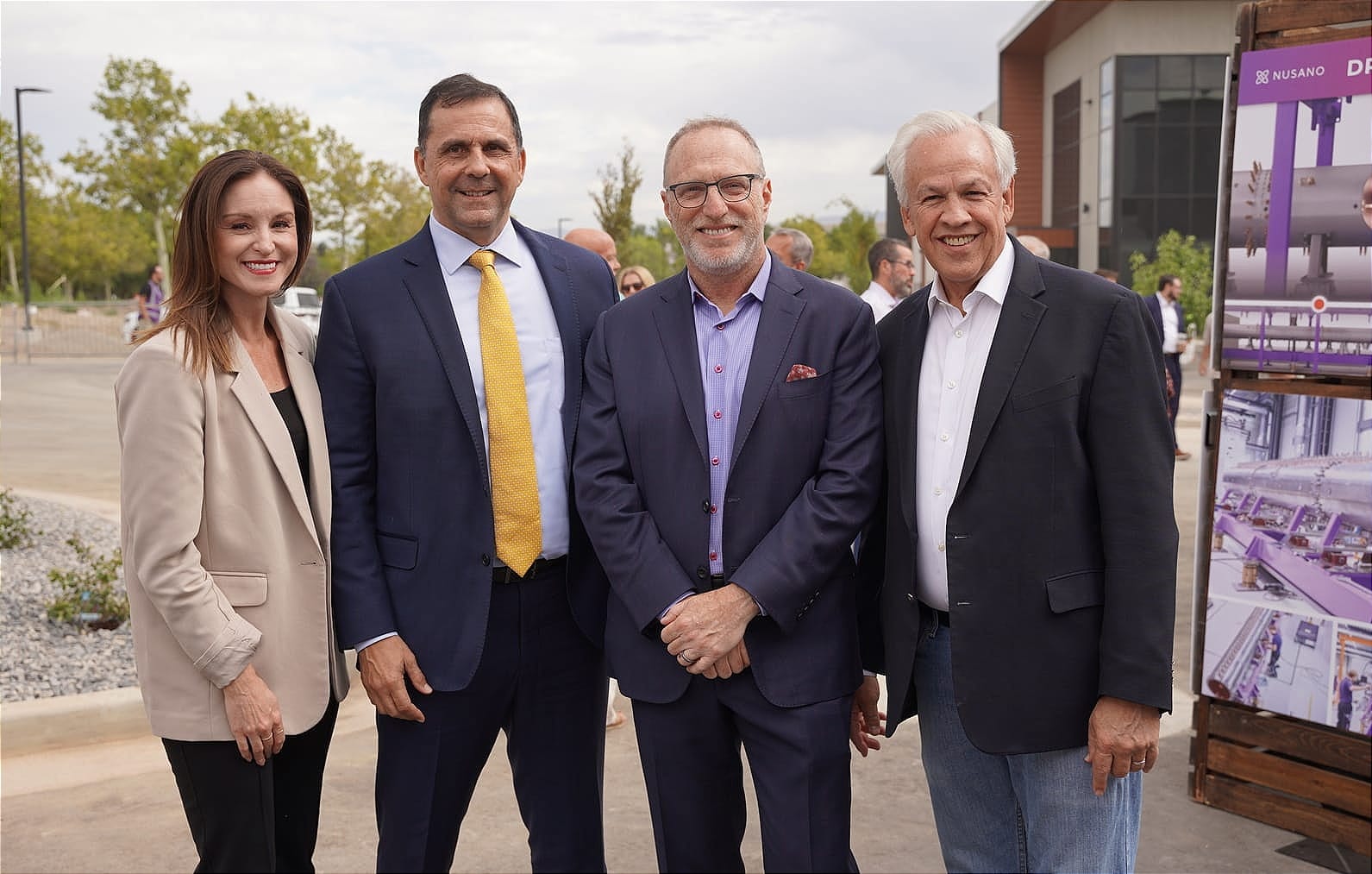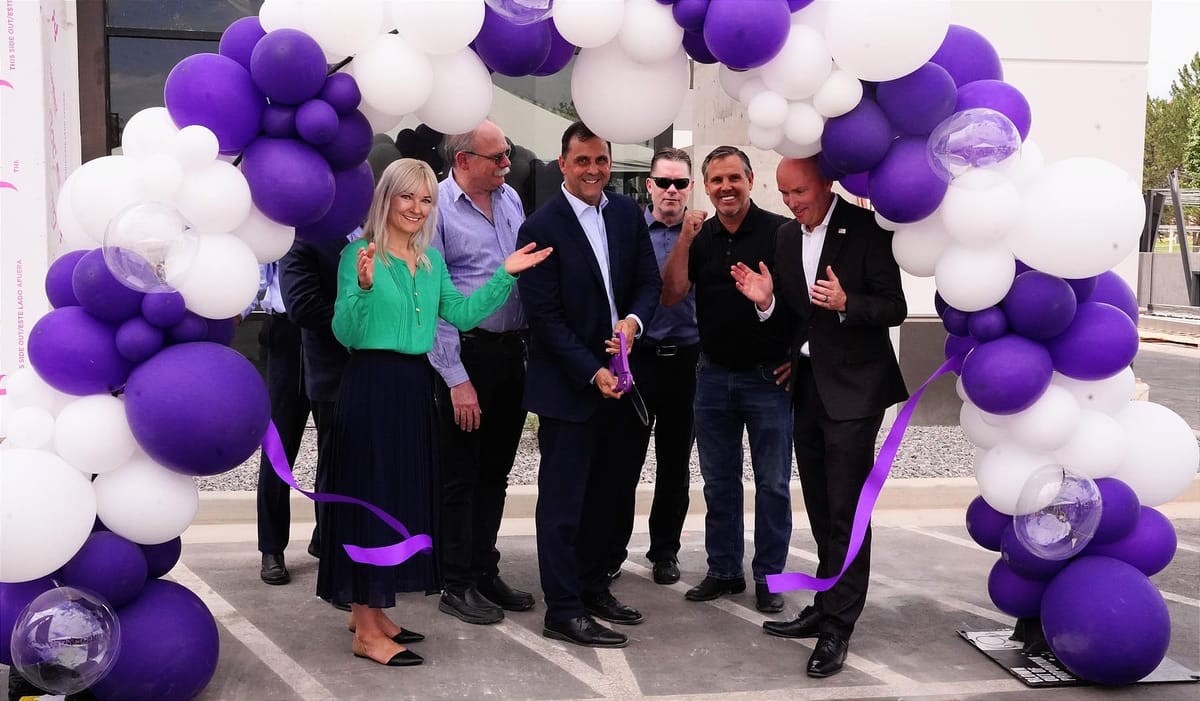

Today’s ribbon cutting at Nusano’s new West Valley City facility marked what both company leaders and state officials are calling a historic turning point for healthcare innovation, energy independence, and Utah’s economic future.
Governor Spencer Cox framed the moment as “one we will look back on in the years to come as the beginning of greatness here,” pointing to the possibility that “the cures for cancer that we’ve been praying for for so many years could happen right here in West Valley City.” He compared Nusano’s breakthrough to penicillin — miraculous in potential, but in need of scale to truly change history. Nusano, he argued, is that missing link: the company making it possible to manufacture medical isotopes at scale, reducing costs, securing supply chains, and putting lifesaving therapies within reach.
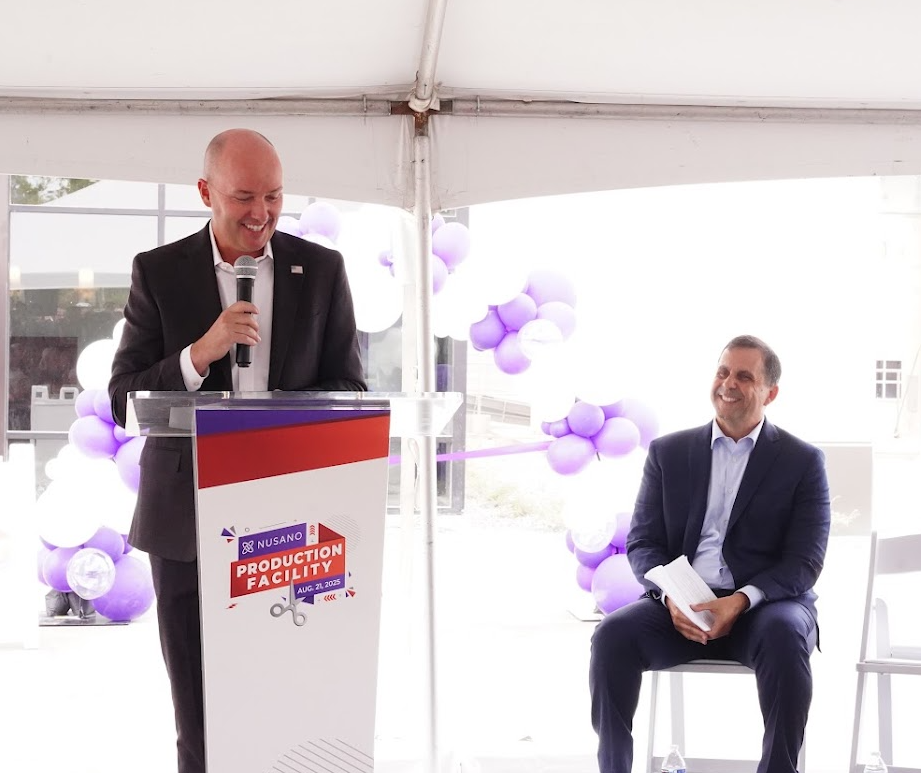
That theme of scale and permanence ran throughout the remarks of CEO Chris Lowe. Nusano’s new facility, built on 688 deep-set concrete pillars to withstand a 7.0 earthquake with less than a millimeter of deviation, is designed to last 40 years. Inside it sits what Lowe calls the company’s crown jewel: a patented ion beam unlike anything else in the world, capable of producing multiple radioisotopes simultaneously and more efficiently than existing methods. “The ion beam that will be housed right inside is game-changing. There is nothing else like it on the planet,” said Lowe.
For Utah, the implications go well beyond healthcare. Nusano’s stable isotope program reduces U.S. reliance on foreign suppliers — particularly Russia — by establishing a 100% domestic supply chain. “Today, most stable isotopes come from Russia or other countries about as desirable as Russia. Our program allows for a 100% domestic supply chain at scale," explained Lowe.
Nusano's novel separation technologies allow matter to be broken down element by element, with applications from medicine to energy, and with a lighter environmental footprint than existing methods. “The hidden gem in this story,” Lowe emphasized, “is that we’re doing things the responsible way… reducing the burden on rivers, streams, and mountains.”
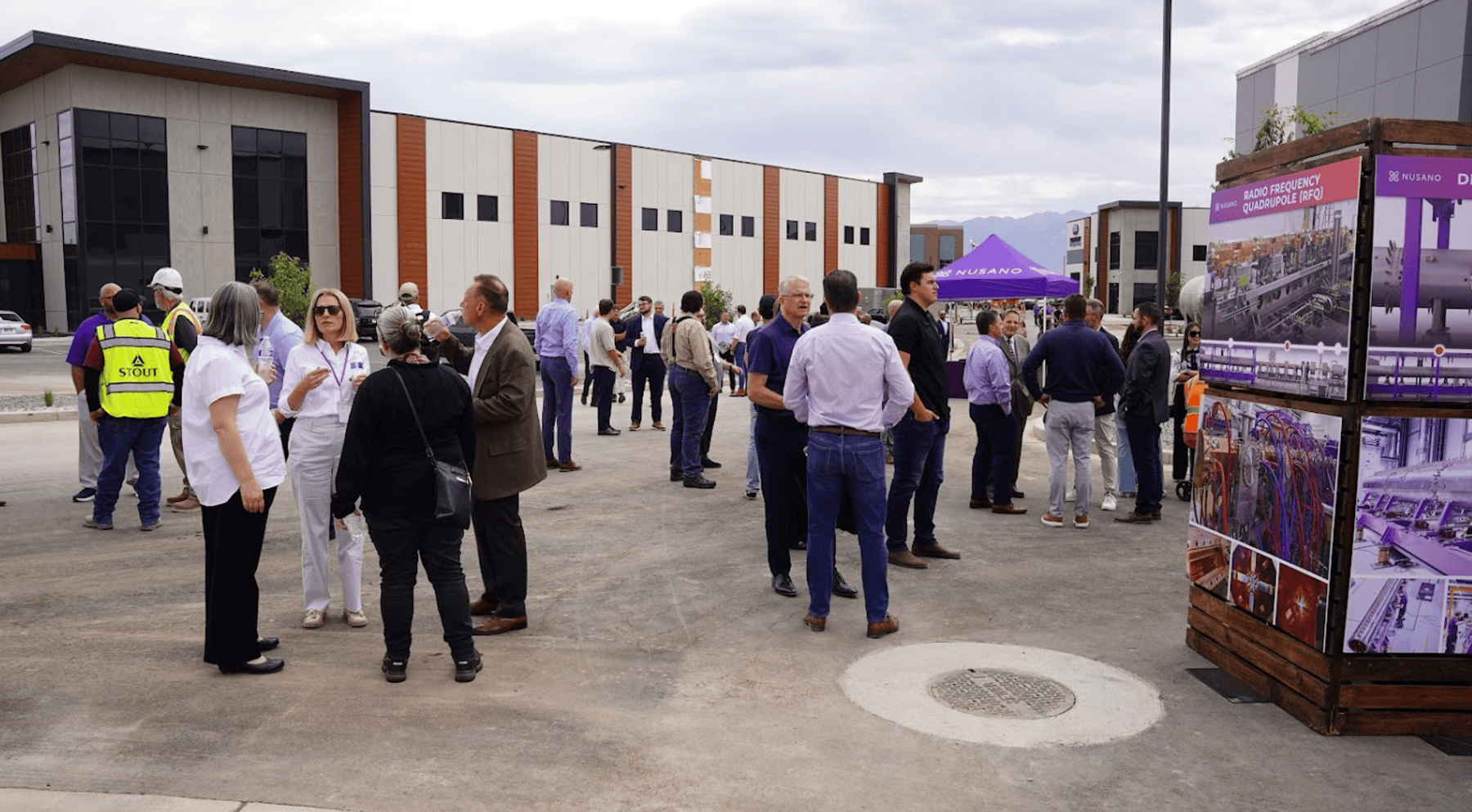
Perhaps most significant for the future of Utah’s economy, Nusano is positioning itself at the center of advanced nuclear power through the production of HALEU (High-Assay Low-Enriched Uranium) fuel. Lowe said Nusano’s approach is about 200 times more efficient than the Department of Energy’s efforts at scale — a claim with huge implications for powering data centers, next-generation reactors, and national energy security.
And Nusano isn’t stopping there. Lowe revealed that the company will be making another major investment in West Valley City, building a dedicated facility for rare earth minerals just down the street. The project represents a $150–$180 million investment over the next 12–15 months, with the potential to create even more local jobs. “This is going to happen very quickly,” Lowe said, underscoring the company’s aggressive timeline for the soon-to-be announced rare earth project. TechBuzz will certainly report the details of this project once they are public.
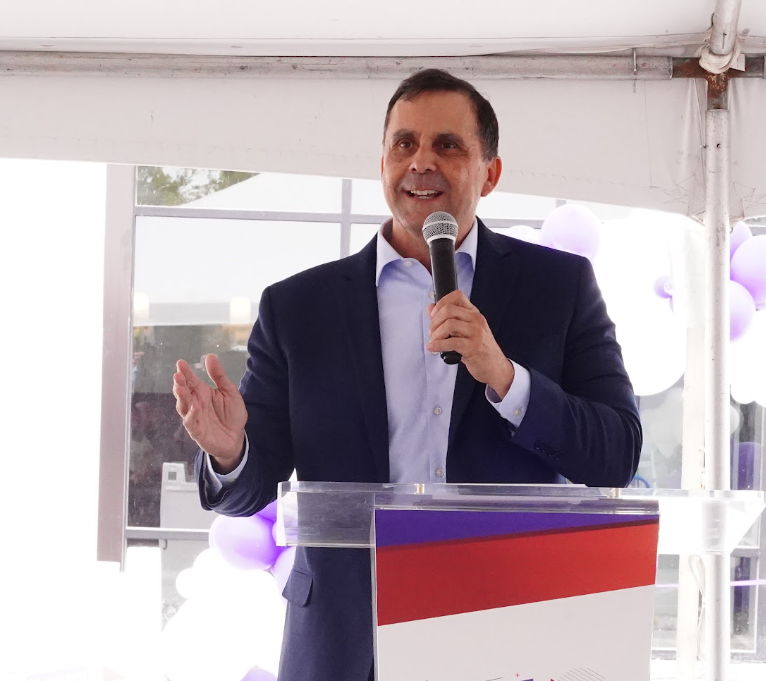
Together, Nusano and Wasatch Group have already invested more than $300 million into the current project, employing over 170 people with plans to grow to 300 in the near future. These are, as Governor Cox noted, “the types of jobs that we want for our families, our kids, and our grandkids.”
Both leaders framed the day not as an endpoint, but as a beginning. For Cox, Nusano represents the pioneering spirit of Utah — solving society’s biggest problems from right here in the state. For Lowe, it’s about building the foundation for decades of innovation, where science, industry, and stewardship align.
“Utah’s best days are still to come,” Cox concluded. Nusano’s ribbon cutting suggests that future may arrive sooner than expected.
For more information, visit Nusano.com
